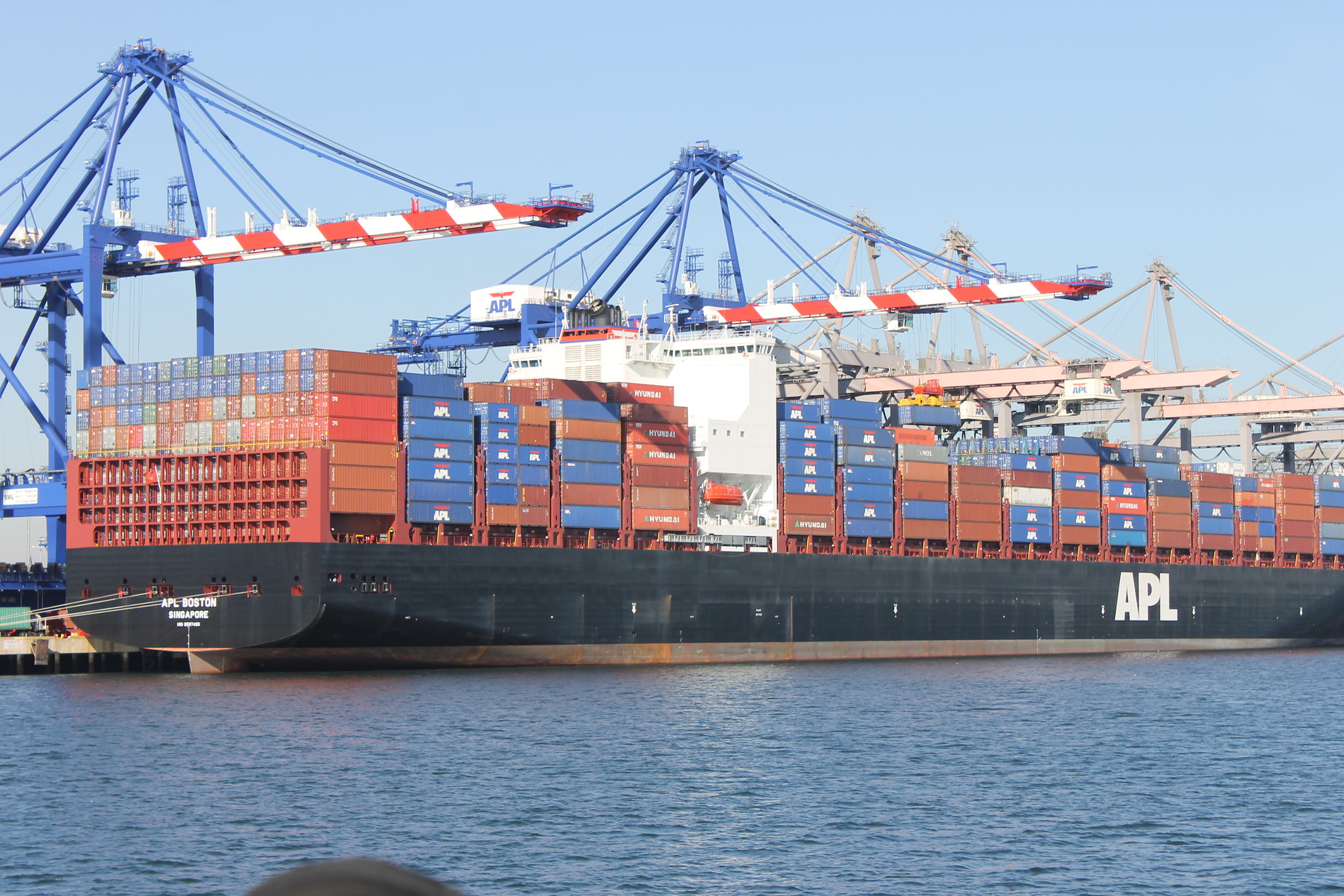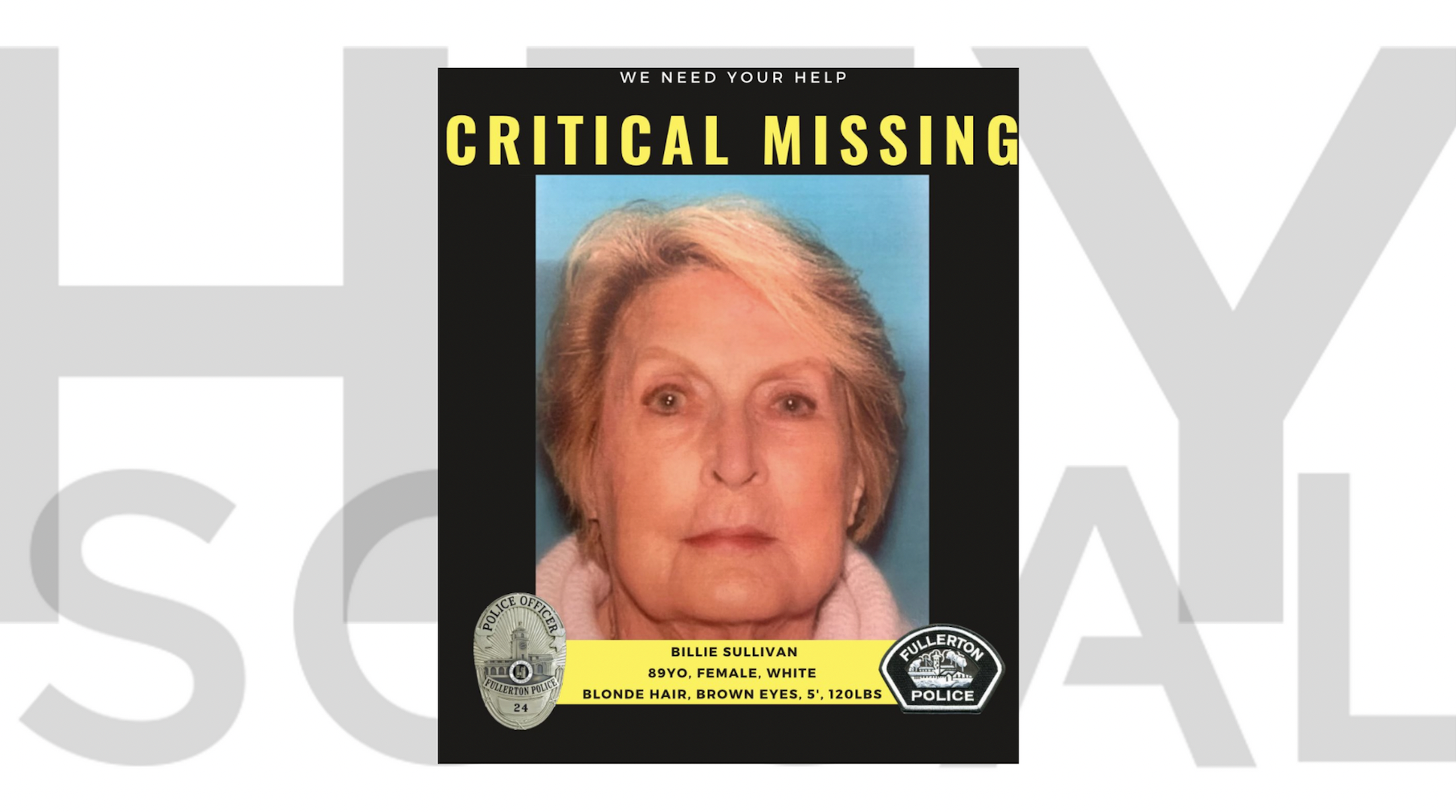The Los Angeles and Long Beach harbor commissions have voted to implement a “Container Excess Dwell Fee” on companies whose containers linger at marine terminals — one of several efforts to speed the processing of cargo at the San Pedro Port Complex and eliminate a backlog of ships trying to deliver merchandise.
Both commissions unanimously approved the new policy Friday, which will be in effect for 90 days.
The Los Angeles City Council on Wednesday pre-approved authorization of the fees in advance of the Los Angeles Harbor Commission considering the policy change on Friday.
Typically, the council gives final approval after receiving recommendations from the commission, but the council took action beforehand so the fines can go into effect on Monday.
The fines will begin at $100 per container, increasing by $100 per container each day.
“Starting Monday, we will be taking daily data snapshots of how long import containers sit on our container terminals,” said Port of Los Angeles Executive Director Gene Seroka.
“If progress is being made clearing our docks, I have the discretion to delay the start of fees beyond Nov. 15. Our goal is to see significant improvement on our docks so that we don’t need to administer any fees.”
Containers set to be transported by truck will incur fines if they remain at the port for nine days or more. According to the Port of Los Angeles, about 40% of import containers are idling at terminals for at least nine days.
For rail containers, fines will be assessed if they are at the port for three days or more.
“Our objective with this program is not to generate revenue,” said Los Angeles Harbor Commission President Jaime Lee. “Instead, we need our supply chain partners to make operational changes that will reduce dwell times, clear our terminals and make room for the ships waiting to enter our port.”
Fees collected from the policy will be reinvested into programs that aim to enhance efficiency, accelerate cargo velocity and address congestion impacts.
“In my communities, particularly in Wilmington, the impacts are creating a hazard to the people that live there,” Los Angeles City Councilman Joe Buscaino, whose district covers the port area, said before Wednesday’s vote to pre-authorize the policy.
“Containers are stacked dramatically high and dangerously high, trucks parked with containers in front of people’s driveways, never-ending truck traffic in residential neighborhoods. In fact, over 400 citations were given by (the) Port (police department) in the month of September.”
The policy to implement fees was developed in coordination with the Biden-Harris Supply Chain Disruptions Task Force, the U.S. Department of Transportation, the Port of Long Beach and supply chain stakeholders.
President Joe Biden recently announced an agreement for both ports to operate around the clock to help speed the movement of cargo. Last week, Long Beach eased restrictions on the height of stacked cargo containers in hopes of allowing more container storage at the port and moving ships out more quickly.
According to the ports, prior to the COVID-19 pandemic, containers for local delivery sat at marine terminals for less than four days, while containers set to be carried by trains remained for less than two days.
But those numbers have “increased significantly, making it difficult to clear cargo off the terminals and bring in ships at anchor,” according to the ports.
“We must expedite the movement of cargo through the ports to work down the number of ships at anchor,” Seroka said Monday while announcing the fines.
“If we can clear this idling cargo, we’ll have much more space on our terminals to accept empties, handle exports, and improve fluidity for the wide range of cargo owners who utilize our ports.”
Port of Long Beach Executive Director Mario Cordero said “immediate action” is needed in response to the “escalating backlog of ships off the coat.”
“The terminals are running out of space, and this will make room for the containers sitting on those ships at anchor,” he said.
On Thursday, California and the U.S. Department of Transportation announced a multi-billion-dollar loan agreement for California to use on supply chain infrastructure improvements, including upgrades at the ports of Los Angeles and Long Beach.
The announcement will not affect the current backlog, but officials hope it will make the infrastructure system more equipped for the future.







